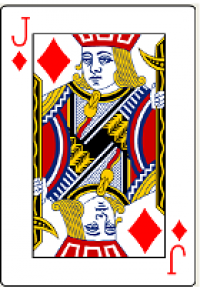This is an old revision of the document!
Table of Contents
CogState
The CogState is a battery of computerized cognitive tests used in Lifelines to broadly assess cognitive functioning of participants (section: mental health). The test battery was performed in ~68,000 able participants aged 13 years and older during 2A Visit 1, and is used again in the ongoing assessment 3A.
The Cogstate is used in conjunction with other cognition tests in Lifelines, i.e. the RFFT and the MMSE. Raw data of the Cogstate was used to calculate the Cogstate Speed Composite (CSC).
Protocol
Lifelines uses the brief battery of CogState tests, measuring different cognitive function domains:
- Detection task (psychomotor function / speed of processing) (2 min)
- Identification task (visual attention/vigilance) (2 min)
- One back (working memory) (2 min)
- One Card Learning task (visual learning & memory) (5 min)
NB: The Groton Maze Learning Task, which is part of the full CogState battery, was not used in Lifelines.
All subtests are based on playing card formats, with little reliance on assessment of verbal abilities. The Brief Battery can be administered un-supervised.
Written instructions are presented on the screen. Responses are made on a computer keyboard represented on the screen, with responses by using the “k” key for yes and “d” key for no.
Outcome measures are:
- number of errors/correct responses
- reaction time
The participant should be able to use a computer keyboard or mouse with one hand and should be able to see the computer screen (i.e. normal vision observation). If participants use reading glasses, they are recommended to use them during this task.
Validation
Content validity: Content validity of the CogState can be considered good because it includes a broad range of cognitive functioning domains. The Cogstate testing method has been validated in international peer-reviewed journals. It targets a wide range of cognitive domains, including simple reaction time, attention, executive function and social-emotional cognition. The tests are designed to maximize the signal and minimize the noise from cognitive recordings taken in research trials. They have a proven ability to detect both improvement and decline in cognition.
Criterion/construct validity: No gold standard is currently available to measure cognitive functioning. However, The MMSE is a widely used screening instrument for cognitive function and measures global cognitive functioning 1). Based on a case control study including 21 subjects with mild cognitive impairment and 98 healthy controls (age > 60 year), the CogState had a sensitivity of 78% and specificity of 90%. This was much higher compared to the Mini Mental State examination (MMSE) (sensitivity: 44%, specificity: 69%). The study also investigated the sensitivity and specificity of the Hopkins Verbal Learning Test (HVLT) and this test had a slightly better sensitivity (79%) and specificity (95%) compared to the CogState 2). However, the HVLT is based on a paper-and-pencil test, which needs to be conducted under guidance of an assistant which may influence sensitivity and specificity. In this case-control study, participants performing the CogState were supervised by one of three psychologists through a practice session on the CogState (to maximize good performance), followed by the test battery with minimal supervision/assistance.
The test-retest reliability of different CogState subtests has been described in various studies 3) 4) 5).
Responsiveness of the instrument has been assessed by measuring decline in cognitive performance of patients with mild Alzheimer’s Disease on the International Shopping List Test (ISLT); a subtest of the CogState6). Results show that compared to controls, patients with Alzheimer’s Disease show deterioration in verbal memory over a period of one year. We would expect similar results on all other subtests of the CogState suggesting that the CogState is sensitive to changes in cognitive functioning in persons with Alzheimer’s disease. A longer period of follow-up would be needed to be able to say something about responsiveness among the general population (i.e. persons without cognitive impairments).
CogState in Lifelines: correlations between the CogState and RFFT scores are described in a paper by Kuiper et al. 7)
Variables
| Label English | Code | Variable | Assessment | Age |
| Test Code | TCODE | 2A Visit 1 | 13+ | |
| Total presentations or trials. | cogstate_presentations_all_m_1 | PRESNT | 2A Visit 1 | 13+ |
| Total correct responses | cogstate_correct_all_m_1 | COR | 2A Visit 1 | 13+ |
| Total error responses (includes FPos, FNeg, anticipations and max outs). | cogstate_errors_all_m_1 | ERR | 2A Visit 1 | 13+ |
| Speed measure - mean of the log10 transformed reaction time for correct responses | cogstate_speedtransf_all_m_1 | LMNTRANS | 2A Visit 1 | 13+ |
| Speed measure - mean of reaction time for correct responses | cogstate_speed_all_m_1 | LMNUNTRANS | 2A Visit 1 | 13+ |
| Speed measure - standard deviation of the log10 transformed reaction time for correct responses | cogstate_logstdev_all_m_1 | LSD | 2A Visit 1 | 13+ |
| Accuracy measure - arcsine square root transformed - hitrate (correct responses divided by total responses (total includes TPos, TNeg, FPos, FNeg, anticipations and max outs) | cogstate_hitratetransf_all_m_1 | ACCTRANS | 2A Visit 1 | 13+ |
| Accuracy measure - hit rate (correct responses divided by total responses (total includes TPos, TNeg, FPos, FNeg, anticipations and max outs) | cogstate_hitrate_all_m_1 | ACCUNTRANS | 2A Visit 1 | 13+ |
| CPAL and ISLT specific - “Stimuli”. For CPAL is total filled markers, and for ISLT is total words in the presented list. | cogstate_stimuli_all_m_1 | STI | 2A Visit 1 | 13+ |


